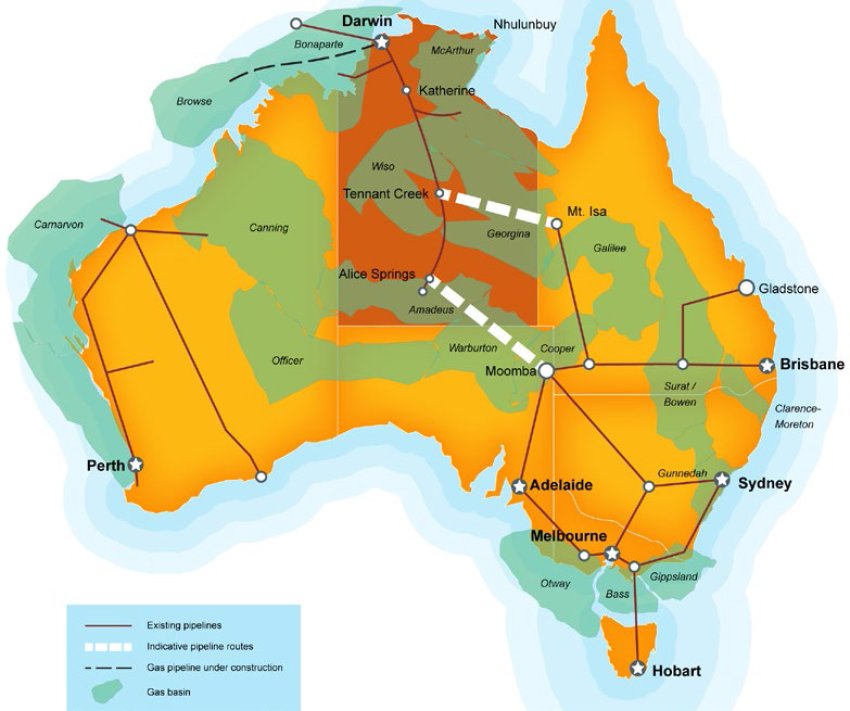
Under the COVID-19 shutdown, the oil price has crashed and gas is in oversupply. Fracking companies in the United States are going bust. But fracking is still being forced on communities in the Northern Territory.
Big gas corporations, such as Origin Energy and Australian-based Santos, have temporarily halted their projects, but shareholders are being told of plans to restart fracking the NT in the next 3 to 9 months.
Given that global gas markets are in a state of oversupply, how is it possible that fracking could continue? The answer is that nothing beats a good government subsidy.
The gas industry has always sought government subsidies and royalty holidays in return for the short-term promise of jobs and investment. In the NT, a gas task force has been given $5 million a year to help the industry get off the ground. The Michael Gunner government is also planning to build a gas pipeline from Tennant Creek to Darwin, to make sure Darwin continues to be a gas export hub to Asia.
To help the fledgling gas industry gain a foothold in the NT, ex-Santos lobbyist Shaun Drabsch (who left the company in February last year) has been appointed the head of the NT Department of Trade, Business and Innovation.
Drabsch’s LinkedIn profile shows that he spent 2018–19 contracted on a part-time basis to help Santos engage with the NT government to introduce new regulations covering the development of onshore shale gas. He is now overseeing major infrastructure projects in the NT.
At a federal level, there is a similar pattern. The head of Australia’s COVID-19 business taskforce, Neville Power, is a deputy chairperson of onshore gas company Strike Energy.
Last week, Power claimed that the best way to rebuild the nation’s economy is by lowering gas prices and the only way to do that is to increase gas supply. “We have significant reserves in central Australia and significant reserves in Western Australia,” he said. He should know, as Strike Energy has onshore gas licences in the Perth Basin.
The lack of separation between gas companies and governments is a major problem across the country.
On April 27, The Australian reported that gas companies Origin Energy, Santos and Shell paid $1.5 million for a study that determined, controversially, that fracking for gas in Queensland is safe. The report was produced by The Gas Industry Social and Environmental Research Alliance (GISERA) in a highly questionable collaboration between the CSIRO, Commonwealth and state governments and the gas industry.
The task was to conduct “independent research”. Origin paid for 74%, or $245,670, of the phase one funding, while the second phase was covered by the gas industry (61% or $1.28m) with CSIRO footing the $826,000 balance.
The industry-funded CSIRO study looked at just six unconventional gas wells, out of 19,000 in Queensland. However, it claimed that the use of fracking to extract coal seam gas in Queensland has little to no impact on groundwater, waterways, soils or air quality.
Critics from local communities and action groups have long been concerned about the industry’s long-term adverse impacts on health, water supplies and its contamination of agricultural land. Numerous peer-reviewed scientific studies from the United States over the past decade show the same problems.
GISERA director Dr Damian Barrett said: “It’s not up to the CSIRO to determine whether or not gas development goes ahead, but we do want to see approvals based on rational information and quality of science.”
The question being asked by communities across Australia, however, is how can science be independent when the gas industry is funding the research.
The release of the study that claims fracking in Queensland is safe comes as a decision on one of Australia’s most controversial coal seam gas projects — Santos’s $3.5 billion project at Narrabri, New South Wales — nears its final approval stages.
This gas project has been held up for years, due to community opposition and the company’s inability to satisfy departmental concerns. More than 18,000 public submissions opposing the project were lodged with the NSW Department of Planning and Environment, the largest number of submissions it has ever received for a development application.
There is also widespread public opposition to fracking in the NT. When Origin Energy proposed fracking its Kyalla 117 shale gas well in the Beetaloo Basin last year, the opposition was overwhelming: 6311 public submissions were sent to the NT government, with 6284 opposing Origin’s plans to frack. More than 99.5% of public submissions were against the well being drilled, including those from traditional owners from the region. But the well drilling went ahead.
Only time will tell if more NT government subsidies will help to force a dangerous and dying gas export industry upon a population who do not want it.
As governments at the state, territory and federal level continue to hire gas industry insiders to call the shots, it is even more imperative for communities to stand up and say “no” to the idea that fracking is any kind of answer to Australia’s post-COVID-19 economic recovery.
[Daniel Robbins is the coordinator of Protect Country Alliance in the Northern Territory.]